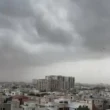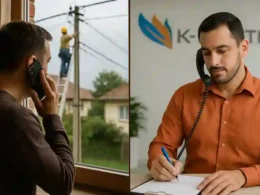As the religious festival of Eidul Azha unfolds in Karachi, the dilapidated infrastructure and failing distribution and supply system of the city exacerbate the woes of its residents, leading to an acute shortage of water. The widening gap between water supply and consumption during the festival, with increased usage for cooking, cleaning, bathing, and sanitation purposes, further amplifies the challenges faced by the city’s inhabitants.
Reports of severe water shortage have emerged from various localities, highlighting the long-standing issues within the Karachi Water and Sewerage Board (KWSB). Insiders within the board attribute the inability to address the problem of short supply to the decades-old infrastructure, with some components in operation for over 40 years.
Densely populated areas such as Orangi Town, Baldia Town, Gadap, North Karachi, Nazimabad, North Nazimabad, Federal B Area, Gulistan-i-Jauhar, Gulshan-i-Iqbal, Malir, Landhi, Korangi, Shah Faisal Colony, parts of Clifton under the Karachi Metropolitan Corporation’s jurisdiction, and Lyari are among the worst affected by the acute water shortage. Residents in these areas complain of receiving less than 60 percent of their allocated water quota.
Even the affluent parts of the city, including Defence Housing Authority and Clifton under the administrative control of the Cantonment Board Clifton, continue to face water scarcity. Residents in these areas are left with no choice but to rely on purchasing water tankers to meet their water needs.
Many residents have accused the KWSB of deliberately creating an “artificial shortage” during Eidul Azha to benefit the water tanker business. The increased demand has led to soaring prices, with water tanker rates skyrocketing from Rs 1,500-Rs 2,000 to Rs 5,000-Rs 5,500.
An anonymous KWSB engineer revealed that the transmission and distribution system of the water board is in a dilapidated state, unable to meet the growing demands of the population. The aging infrastructure has exceeded its designated economic life, resulting in losses of up to 42 percent.
Residents have expressed their frustration with the sporadic water supply. In Clifton, for instance, water flows through the main pipelines only once a week for a mere 10 minutes, despite regular bill payments. The situation is no better in other areas, with residents resorting to using suction pumps to obtain limited water supply at odd hours.
Many residents believe that certain officials within the water utility are involved in creating an artificial shortage, particularly during religious festivals, to benefit the water tanker mafia business.
Efforts to address the water shortage have been initiated by the KWSB, but challenges persist. Over 550 million gallons of water are fed into the city’s main pumping station at Dhabeji daily, but over 40 percent of this water is lost or stolen before reaching consumers.
The Chief Executive Officer of the KWSB, Syed Salahuddin Ahmed, assured the public that the water utility is making every possible effort to ensure smooth water supply during Eidul Azha. He directed all executive engineers and superintending engineers to remain on duty, closely monitoring ongoing works and promptly addressing complaints.
As Karachi grapples with water scarcity and an aging infrastructure during the festive season, residents are left questioning the efficacy of the water utility in fulfilling its responsibility of ensuring adequate water supply to the city.








